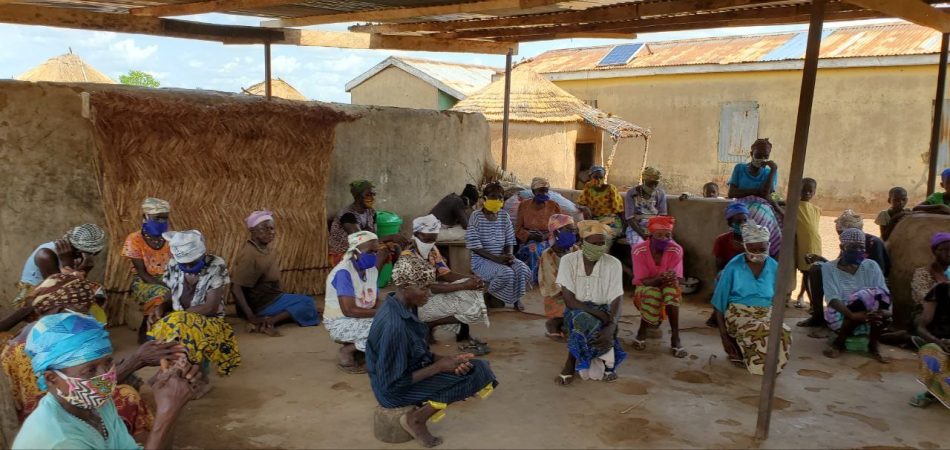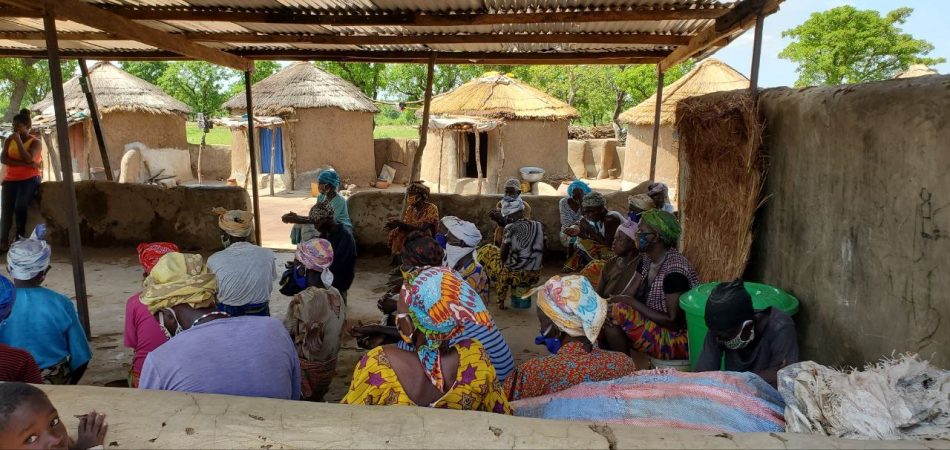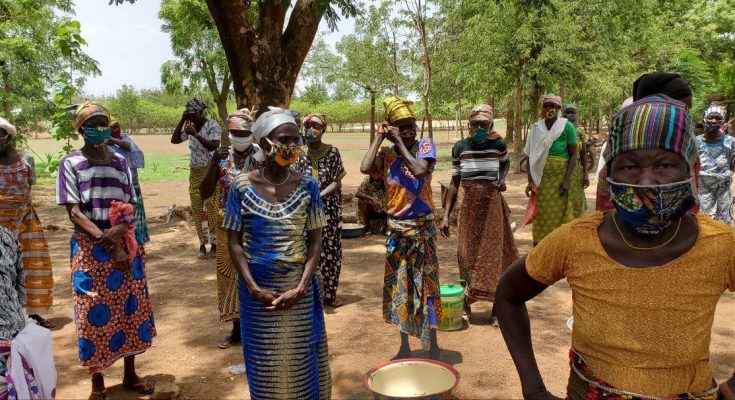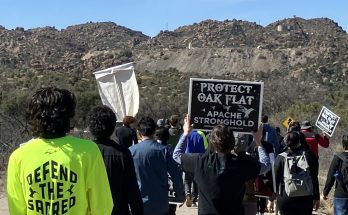July 24th 2020, began like any normal day in Ghana, a West African country that is known for its charm, friendliness and originality. Until late morning when videos of an elderly woman being beaten in public circulated on social media. She was frail and helpless on the floor, subjected to belt strokes in what looked like a community gathering, pleading to spare her life, but no one listened. Her crime? She had been accused of witchcraft by youth in the community.
Akua Denteh who was 90 years at the time was beaten to death in broad daylight at Kafaba near Salaga in the Northern region, a well-known slave market in the 18th and 19th centuries. A fetish priestess accused her of being the witch responsible for the burning of a youth shed and irregular rainfall in the town.
Bizarre and sad as it may sound, this is what older women are subjected to in the northern part of Ghana. I have been practicing journalism for a decade and have heard stories of alleged witches living under deplorable conditions in camps. My first encounter with this subject was in 2013 when my best friend visited the Gambaga camp with then first lady Lordina Mahama. She came back with stories of almost collapsing structures and pitiable conditions. We agreed that these camps need to be closed. The sad thing is, we never did much with our pens to have a policy change. Or maybe the time was just not right, because looking back now, I think we lacked a better appreciation of the issue.
My next trigger was an interaction with Ft. Phanuel Myers Agudu who during the last seven years has been supporting women personally at the Gushegu camp. He gave me a deeper perspective, pointing out that witchcraft accusations are used as tools to impede women empowerment and to settle long-standing family disagreements.
While I was thinking about how to make an impact, the story of Akua Denteh broke. That was the awakening for me. I began looking for opportunities to be a better communicator on the subject and build a network for support. While searching I found that applications for the Humphrey Fellowship were opened. Even before applying, I needed to have first hand information on the camp situation.

I decided to visit Kafaba, the scene of this heinous crime. It was almost a sixteen hour journey with Ft. Phanuel Myers Agudu to meet with the family of Akua Denteh and her 93-year-old sister. The weak, old woman shed tears of her inability to save her sister, even as she heard her crying just outside her window. She was too terrified to suffer the same fate.
I also visited the Gushegu camp where over 60 women were housed, isolated in a bush far away from town. On a small flooded path we walked through the mud, at risk of snakes and other dangerous animals to meet these alleged witches.
Unlike other camps that have caretakers who control entry and departure, Gushegu is free for all to enter. I saw dilapidated mud houses the older women live in, cooking and sleeping in the same small cubicle. Ironically, the women who are perceived to be evil, were singing praises to God in the church. There, they told me painful stories of how they were driven out of their homes and forced to live like the destitute.

There was Arisaytu Bunga who was accused in her mid-20’s. She did not know her current age but looked as if she was in her early 40’s. She narrated how her husband’s brother, who disliked her, accused her. She says without any questions or an opportunity to defend herself, her husband beat her up and drove her out of the house. Fearing that the news will spread in the community and make her target for lynching, she ran to the camp.
Next to her was 27 year old Maymuna, a mother of four. She was only 15 when she saw her mother being beaten and almost killed for allegedly being a witch. I cannot imagine the trauma she could have gone through at the time, but herself and two brothers had to take their mother to the camp so she could be protected. Maymuna had to drop out of school to take care of her mother at the camp. She told me that as a young woman she did not feel safe and still lives in constant fear of being a victim of what her mother is suffering.
Though both men and women can be accused of witchcraft, the vast majority are women. In the Northern part of Ghana where this practice is rampant, there are about six camps housing around 800 women and 500 children, according to a 2012 ActionAid report.
Ghana’s government has for years tried short-term measures of closing down the camps due to human rights abuses there. For example, the sole right of determining a person’s guilt is given to a witch doctor. In other cases, the fate of the accused woman is determined by the way the stabbed fowl falls. If it goes with a breast down, a woman would be reassured as innocent, otherwise she is found guilty and imprisoned.
The government’s efforts to end these abuses by closing down the camps are unsuccessful, because communities are unwilling to accept alleged witches back. These women actually felt a lot safer in the camps as they feared being lynched in their communities. It became clear to me that if the accusations were not stopped, the camps could not stop admitting the women.
Previous efforts show that ending this deeply rooted practice will be a herculean task. I am not sure I can single handedly end this practice in Ghana, but I am certain to make a difference. My dream is to provide education to respective communities, so they make a decision to end this practice themselves. I want to ensure that people understand the harm they cause to the lives of women and children who are denied a right to education, a home and family. Basic right to life.
My Humphrey journey is borne out of a duty to my community and country to protect the lives of young women like Maymuna, so they do not have to live in the shadows of their mothers’ suffering.




